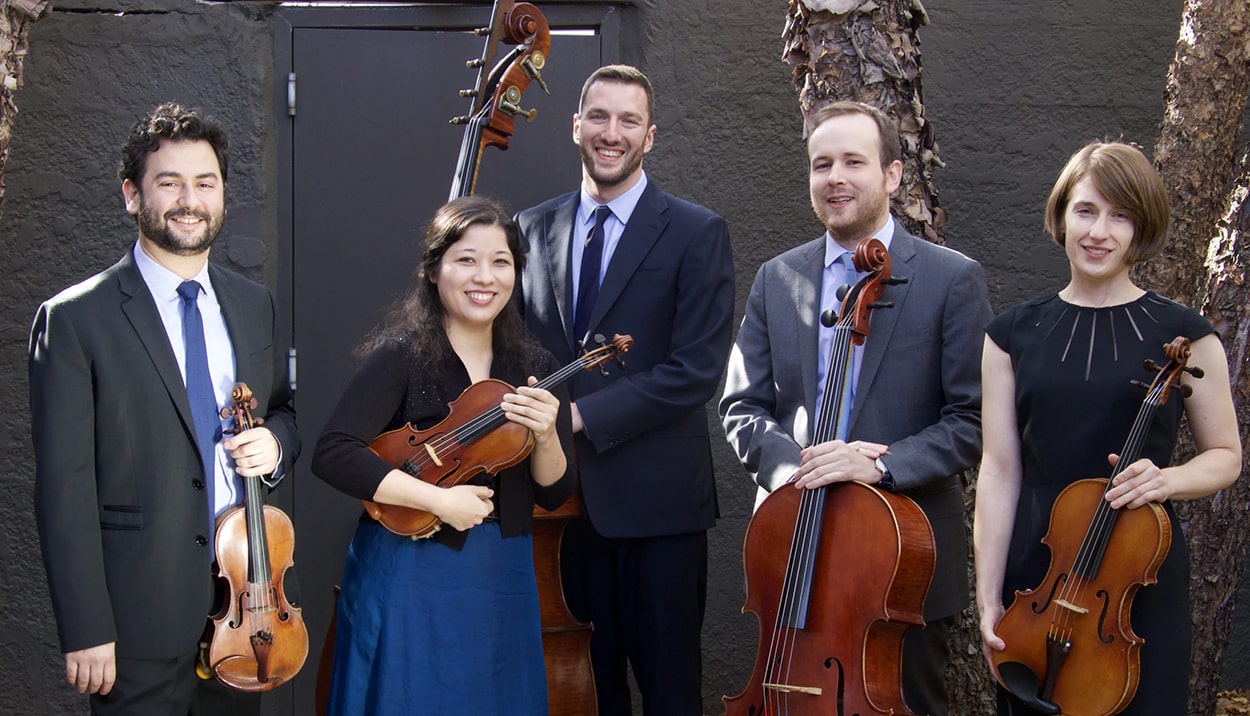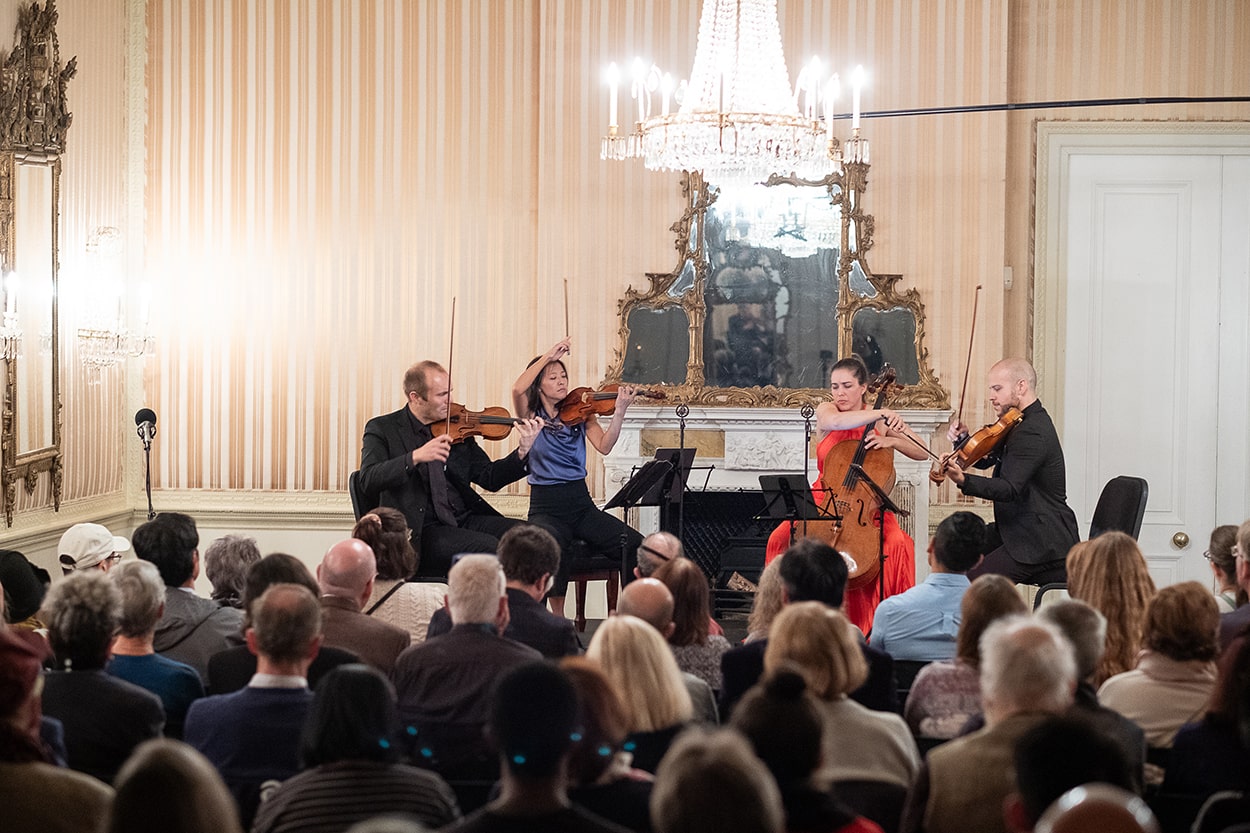Cuba: What Comes Next?
Cuba: What Comes Next?
Top Cuban experts see no change in sight, despite Raul Castro's formal ascension to power. The COA program examined the new leader's likely priorities and the island's ties with the international community.
- Vicki Huddleston, Visiting Fellow, Brookings Institute
- Phil Peters, Vice President, Lexington Institute
- Chris Sabatini, Editor-in-Chief, Americas Quarterly
- Frank Calzon, Executive Director, Center for a Free Cuba
- Gary Marx, Visiting Fellow, University of Notre Dame
- Eric Farnsworth, Vice President, Council of the Americas (moderator)
Summary
Two weeks after longtime Cuban leader Fidel Castro announced intentions of resigning, the Council of the Americas hosted a panel at the Carnegie Endowment for International Peace to discuss Cuba’s future. Five panelists with varying positions presented their views on the fate of post-Fidel Cuba, touching on subjects ranging from international perceptions to domestic imperatives. The discussion provided unique perspectives on the political climate in relation to the economy as well as the role of the international community’s influence on the Caribbean island.
The Domestic Situation
Opening remarks focused on Cuba’s domestic political situation, including the selection of Fidel Castro’s brother Raul to succeed his brother as president as well as the implications of a new face of leadership after nearly fifty years under one leader. University of Notre Dame’s Gary Marx opened by saying the world should expect limited change in Cuba. He stated that the political and economic climate is sustainable and that there was little to indicate an imminent change. Marx said that Washington exaggerates the amount of pressure for change in Cuba. Two factors contribute to maintaining the status quo: the presence of a police state that maintains widespread paralysis and the exodus of the most vociferous dissenters, said Marx. He was skeptical of Raul’s ability or intent to bring about economic or political reform, pointing to Raul’s recent appointments of highly loyal party members to the highest government positions.
Brookings Institutions’ Vicki Huddleston concurred with Marx, offering an analysis of Raul Castro’s leadership goals and style. According to Huddleston, Raul’s first priority is power consolidation, but while Raul has at his disposal the military and the police to control dissent and secure his rule, he lacks legitimacy as a leader. However, says Huddleston, To achieve legitimacy, Raul can only cement his authority by stepping out of his brother’s shadow and addressing economic reform, a subject which has drawn some modest criticism from working and academic classes. While the unhappiest Cubans will most likely leave, Raul must work to appease Cubans who face a deteriorating transportation system and a dual currency system that hurts purchasing power.
As a Cuban refugee and political scientist, Center for a Free Cuba’s Frank Calzon took a different view of the Cuban situation. He sees two Cubas. The first is the one Fidel Castro inherited in 1959, which then experienced political oppression and the decimation of the island’s sugar industry. The second is a false intellectual construct of an industrialized nation that depicts itself as what would have been a powerhouse of milk and sugar production. Commenting on Raul’s succession, Calzon said the notion of a real “transition” painted by other countries’ government officials and the media is fallacious and that the power handover constitutes little more than a continuation of the communist party’s dictatorial rule over an oppressed people who must be liberated.
The International Perspective
The Lexington Institute’s Phil Peters dedicated his opening remarks to the role of the international community in Cuba’s development. The next U.S. president will realize that the rest of the world is already engaging Cuba, said Peters. Venezuela, Cuba’s closest ally, fuels Cuba’s growth by injecting billions of dollars worth of oil into Cuba’s economy. Brazil recently offered the island a $1 billion dollar credit line, and China provides economic counsel to Cuba. Peters lamented that, meanwhile, the United States remains on the sidelines. While Washington wants to maintain influence over Cuba, it does not want to do so through direct contact. Instead, the United States employs tools such as denying hard currency and maintaining an embargo, but such methods yield no coercive impact on Cuban politics, said Peters.
On the human rights front, Peters highlighted Cuba’s signing of UN human rights convention that will take effect in 2009. But he expressed reserved optimism about the extent to which this measure will improve conditions for Cuba’s politically oppressed.
AS/COA’s Chris Sabatini completed the discussion by pointing to current circumstances that speak to the way events could unfold in the coming years. According to Sabatini, Raul’s opposition to a liberalized economy as well as his sworn ideological commitments to continue in his brother’s path would suggest that no transition is underway in Cuba. The military controls most of Cuba’s economy and can offer no comparative advantage over multinational enterprises. The Cuban government would stymie liberalization of the economy, given that empowerment of the people through foreign investment would threaten the government’s power and influence.
There has been speculation that Cuba might move toward a model similar to the liberalized Eastern European markets or China’s economy. But while panelists agreed that Cuba under Raul would witness little to no change, all panelists also agreed that Cuba must begin a move towards democracy. The question remains whether that change will be originate from the top, from the bottom, or from a new generation.







